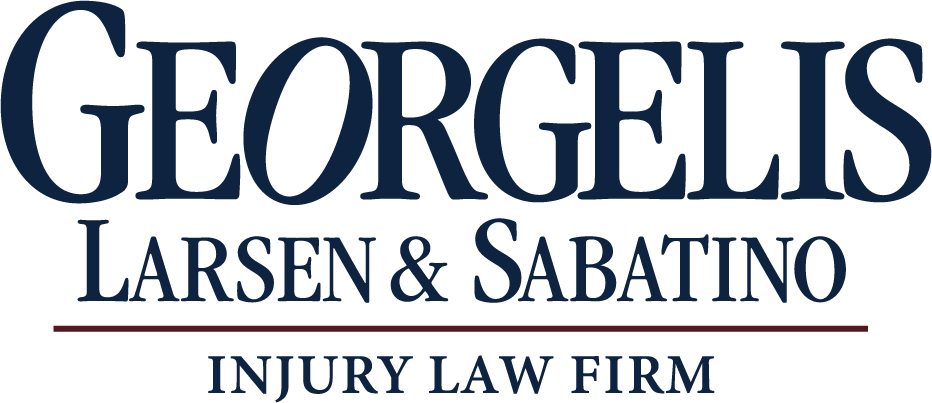
Dealing with stress at work is often an inevitable part of life. From meeting deadlines to managing office politics, the workplace can be a source of significant strain. However, it’s important to recognize that occasional pressure is different from chronic, overwhelming stress. Some jobs, particularly those in high-stakes or high-pressure environments, come with an added level of stress that goes beyond the norm.
When this work-related stress escalates to a point where it causes psychological injury or illness, it ceases to be just a part of the job and becomes a serious health concern. It’s crucial for employees to recognize this tipping point.
When work-related stress leads to a mental injury, an employee may be eligible to file a claim for workers’ compensation until they can return to work. Such claims can help cover the costs of treatment and provide wage replacement during recovery.
Let’s take a closer look at the different types of psychological claims, who is eligible, examples of psychiatric injuries, and when a worker should consider filing a claim for a mental injury.
Types of Psychological Claims
In the realm of workplace compensation, there are various types of psychological claims that a worker can use as a basis to file a claim. These can range from claims for a mental illness such as acute stress disorder, resulting from a single traumatic event at work, to claims for chronic conditions like depression or anxiety, often caused by prolonged exposure to a stressful work environment.
Some types of claims are:
- Post-Traumatic Stress Disorder (PTSD): PTSD is a psychological injury that can happen due to witnessing or experiencing a traumatic event such as a crime, accident, or natural disaster.
- Depression and Anxiety Disorders: Depression and anxiety can occur due to prolonged periods of stress in the workplace. These mental health conditions can affect a worker’s ability to perform their job and overall well-being.
- Adjustment Disorder: Adjustment disorder is a psychological injury that can happen due to a significant change in the workplace, such as a merger or a new manager.
In a 2021 American Psychological Association survey, nearly 3 in 5 employees (59%) said they have experienced negative impacts of work-related stress in the past month. If your mental health is suffering due to the workplace, know you are not alone and you may have the right to file a mental injury workers’ comp claim. The process itself can be stressful, so let a workers’ comp attorney navigate the process for you.
Who is Eligible for a Psychological Claim?
Eligibility for a psychological workers’ comp claim hinges on the worker’s ability to prove that their mental injury is directly related to their work environment or experiences. This means they must provide evidence to show that workplace stress, trauma, or a specific incident within their job has directly resulted in a psychological injury. This could be a singular event causing mental health issues, such as a traumatic accident at work, or it could be ongoing stressors that have led to chronic psychological conditions over time. However, unless there is a physical injury that directly causes a mental injury, Pennsylvania requires a claimant to demonstrate that the stress was caused by an “abnormal working condition.”
The worker must then establish that this psychological injury is severe enough to impact their ability to carry out their job effectively. This could mean showing their productivity has declined, they are unable to perform certain tasks that were previously within their role, or they need to take time off work for treatment. Medical reports from psychologists or psychiatrists are crucial pieces of evidence here, providing professional insights into how the worker’s mental health condition affects their work capacity.
Beyond just their ability to work, the worker also needs to illustrate that their overall well-being has been adversely affected. This may include changes in their behavior, emotional state, or physical health that can be attributed to their psychological condition. For instance, they might be experiencing sleep disorders, loss of appetite, mood swings, or social withdrawal. These changes can be corroborated through personal testimony, medical records, and even observations from family members, colleagues, or friends.
Filing for a psychological claim involves a thorough process of demonstrating the link between the work-related cause and the resulting psychological injury, as well as clearly showing the significant impact this injury has on both the worker’s professional performance and personal well-being.
Examples of Psychiatric Injuries in the Workplace
Psychiatric injuries in the workplace can occur under various circumstances, each with unique impacts on a worker’s mental health. Here are some examples of how injuries can occur:
- Workplace Bullying: This is an issue that is more common than most people realize and can have severe psychological effects on workers. Persistent bullying can create a hostile and stressful work environment. The constant fear, stress, and anxiety can lead to psychiatric injuries.
- Stress Resulting from Customer Relations: Dealing with difficult or upset customers not only causes stress in the moment, but an affected employee can also worry about dealing with the same customer again or facing a similar situation in the future.
- Excessive Workload: Most employees can shoulder additional responsibilities in the short-term without suffering debilitating mental health effects. If short-term becomes long-term, however, this can increase the risk of depression, anxiety and related problems.
- Traumatic Events: Traumatic incidents at work, such as accidents, robberies, or natural disasters, can have a serious impact on workers’ mental health.
When Should a Worker Consider Filing a Claim for a Mental Injury?
A workplace mental injury can be as debilitating as physical injuries, and it’s crucial for workers to recognize when they may be suffering from such injuries due to their work environment. If a worker is experiencing severe psychological symptoms like anxiety, depression, panic attacks, or Post-Traumatic Stress Disorder (PTSD), they should seek medical care from their employer’s approved list of workers’ comp physicians.
Mental health professionals can provide an accurate diagnosis and recommend appropriate medical treatment options. They can also provide necessary medical documentation that will be crucial for a workers’ compensation claim. This documentation can serve as evidence of the mental injury and its severity, which is essential in proving the validity of the claim.
Alongside seeking medical attention, it’s vital for the worker to report their symptoms to their employer. The same reporting requirements exist for mental injuries as do for physical injuries. Thus, a formal report to the employer must be made within 120 days, but, preferably, as soon as possible.
Employers have a responsibility to ensure a safe and healthy workplace environment. By reporting these symptoms, the worker gives the employer an opportunity to address the issue, perhaps by altering work conditions, providing additional support, or taking steps to prevent further harm.
Notifying the employer is also an important step in filing a workers’ comp claim. Workers’ compensation is designed to cover medical expenses and lost wages for employees who sustain injuries while on the job, including mental injuries.
Psychological Injury Workers’ Compensation Law Firm in Lancaster, PA
Navigating the complexities of workers’ compensation claims for mental health injuries can be an overwhelming process, especially when you’re already dealing with the stress of your injury. At Georgelis, Larsen & Sabatino Injury Law Firm, P.C. in Lancaster, PA, we understand this struggle and are here to provide the guidance and support you need. We believe that mental health matters just as much as physical health, and we strive to ensure that all workers receive the workers’ comp benefits they deserve.
Our experienced team of attorneys focuses solely on workers’ compensation benefits claims and has a deep understanding of the intricacies involved in mental health cases. We know what it takes to build a strong case and have a proven track record of successfully securing compensation for our clients. We also understand the sensitive nature of mental health issues and handle each case with the utmost care, empathy, and confidentiality.
Don’t let the daunting legal process deter you from seeking the help you need. Reach out to us at Georgelis, Larsen & Sabatino Injury Law Firm for a free consultation. Your mental health is important, and you deserve to focus on your recovery while we handle the legalities.
Contact us today, and let’s work together towards securing the compensation that you rightfully deserve. We do not charge a fee unless we win your case. Call 717-394-3004 or start a conversation with us online.





